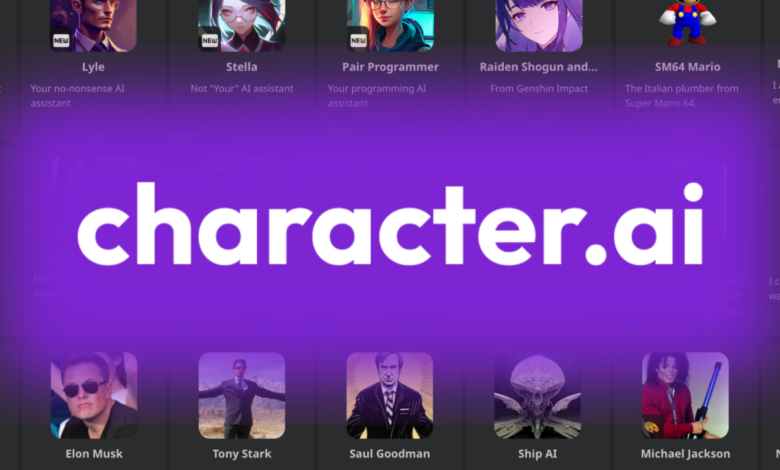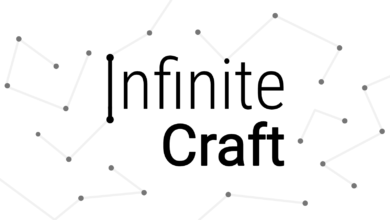Character AI: Key Benefits and Applications Explained

Introduction
In the rapidly evolving digital landscape, Character AI is at the forefront of a technological revolution. Character AI refers to the creation and utilization of artificial intelligence to simulate and manage virtual personas or characters. These intelligent virtual entities are designed to interact with users in a natural, human-like manner, enhancing various digital experiences. As technology progresses, Character AI is becoming increasingly integral in fields such as gaming, customer service, education, and entertainment. This article explores what Character AI is, its applications, benefits, challenges, and future trends, providing a comprehensive understanding of its impact on modern digital interactions.
What is Character AI?
Character AI is a branch of artificial intelligence focused on creating and managing digital characters that can interact with users through natural language and behavior. At its core, Character AI combines multiple technologies, including Natural Language Processing (NLP), Machine Learning (ML), and behavioral modeling. NLP allows virtual characters to understand and generate human-like language, enabling seamless conversations. Machine Learning algorithms help these characters learn from interactions and improve their responses over time.
Historically, the concept of Character AI has evolved from rudimentary chatbots to sophisticated virtual personas capable of nuanced conversations and emotional responses. Early AI systems were limited to simple, rule-based interactions. However, advancements in NLP and ML have paved the way for more dynamic and adaptive character behaviors. Today’s Character AI systems can engage in complex dialogues, exhibit personality traits, and even adapt their behavior based on user interactions.
The technology behind Character AI involves integrating various data sources and algorithms to simulate realistic human interactions. This includes training models on large datasets to understand context, sentiment, and intent. The result is a virtual character that can interact with users in a way that feels natural and engaging, providing a more immersive and personalized experience.
Applications of Character AI
In Gaming
In the gaming industry, Character AI plays a crucial role in enhancing player experiences. Virtual characters, or Non-Playable Characters (NPCs), powered by Character AI, offer more interactive and engaging gameplay. These NPCs can respond dynamically to player actions, adapt their behavior based on in-game events, and contribute to a richer narrative experience.
For example, Character AI can be used to create NPCs with unique personalities and decision-making abilities, making them feel like genuine participants in the game world. This not only improves player immersion but also adds depth to the game’s storyline. Advanced Character AI can also enable NPCs to learn from player interactions, providing a more personalized and responsive gaming experience.
Additionally, Character AI facilitates the development of procedurally generated content, where virtual characters can create or modify in-game scenarios based on their behavior and interactions with players. This adds an element of unpredictability and excitement to the gameplay, keeping players engaged and invested in the game world.
In Customer Service
Character AI has revolutionized customer service by introducing virtual assistants and chatbots that can handle a wide range of tasks. These AI-driven systems provide users with instant support, answering queries, resolving issues, and guiding them through various processes.
Virtual assistants powered by Character AI can engage in natural, context-aware conversations, making customer interactions smoother and more efficient. They can handle multiple inquiries simultaneously, reducing wait times and improving overall service quality. Moreover, Character AI can analyze customer data and interactions to provide personalized recommendations and solutions, enhancing user satisfaction.
Despite their capabilities, Character AI systems in customer service also face challenges, such as understanding complex queries and handling nuanced requests. Continuous improvements in NLP and ML are addressing these issues, enabling virtual assistants to offer more accurate and relevant responses.
In Education
In the educational sector, Character AI offers innovative tools for interactive learning. Virtual tutors and educational assistants can provide personalized support to students, adapting their teaching methods based on individual learning styles and progress.
Character AI can create engaging and interactive learning experiences by simulating real-life scenarios, providing instant feedback, and offering tailored educational content. This personalized approach helps students grasp complex concepts more effectively and enhances their overall learning experience.
Moreover, Character AI can facilitate language learning by engaging students in conversation practice and providing instant corrections. This interactive method helps learners improve their language skills in a more natural and engaging way compared to traditional methods.
In Entertainment
Character AI is also making waves in the entertainment industry, particularly through virtual influencers and celebrities. These AI-powered personas can engage with audiences, create content, and even participate in promotional activities.
Virtual influencers, powered by Character AI, offer a unique blend of creativity and technology. They can interact with followers, generate content, and participate in various online activities, providing a novel form of entertainment and engagement. These AI personalities can also be tailored to specific audiences, offering personalized content and experiences.
Additionally, Character AI enables the creation of immersive virtual worlds and interactive experiences, where users can interact with AI-driven characters and explore new forms of entertainment. This technology opens up exciting possibilities for creating engaging and dynamic content in the entertainment industry.
Benefits and Challenges of Character AI
Benefits
The integration of Character AI into various domains offers numerous benefits. One of the primary advantages is enhanced user engagement. Virtual characters can interact with users in a personalized and natural manner, making digital experiences more engaging and enjoyable.
Character AI also increases efficiency and automation. In customer service, for example, AI-driven virtual assistants can handle routine tasks and queries, freeing up human agents to focus on more complex issues. This not only improves operational efficiency but also reduces costs associated with manual support.
Personalization is another significant benefit of Character AI. Virtual characters can be designed to cater to individual preferences and needs, offering tailored interactions and recommendations. This level of personalization enhances user satisfaction and helps build stronger connections between users and digital platforms.
Challenges
Despite its benefits, Character AI faces several challenges. Ethical considerations and privacy concerns are major issues, particularly when it comes to data collection and user interactions. Ensuring that AI systems handle personal information responsibly and transparently is crucial for maintaining user trust.
Technical limitations also pose challenges for Character AI. While advancements in NLP and ML have improved the capabilities of virtual characters, there are still limitations in understanding complex queries and handling nuanced interactions. Ongoing research and development are needed to address these technical hurdles and enhance the effectiveness of Character AI systems.
Additionally, there is a risk of over-reliance on AI. While Character AI can enhance digital experiences, it is important to balance its use with human interaction. Relying too heavily on AI-driven systems may lead to reduced human engagement and the potential loss of personal touch in certain interactions.
Future Trends in Character AI
The future of Character AI is poised to be shaped by several emerging technologies and trends. Advances in machine learning, deep learning, and natural language understanding will continue to enhance the capabilities of virtual characters, making them more intelligent and responsive.
One notable trend is the integration of Character AI with augmented reality (AR) and virtual reality (VR) technologies. This combination will enable more immersive and interactive experiences, allowing users to interact with AI-driven characters in virtual environments.
Another trend is the increased focus on ethical AI development. As Character AI becomes more prevalent, there will be a greater emphasis on ensuring that these systems are developed and used responsibly, with considerations for privacy, security, and fairness.
The role of Character AI in shaping future digital interactions will also be influenced by advancements in personalization and customization. Virtual characters will become increasingly adept at understanding and adapting to individual preferences, providing more tailored and engaging experiences.
Conclusion
Character AI is transforming the way we interact with digital environments, offering enhanced engagement, efficiency, and personalization across various domains. From gaming and customer service to education and entertainment, AI-driven virtual characters are making a significant impact on digital experiences. Despite the challenges, including ethical considerations and technical limitations, the future of Character AI holds exciting possibilities. As technology continues to advance, Character AI will play a crucial role in shaping the next generation of digital interactions, providing users with more dynamic and immersive experiences.



